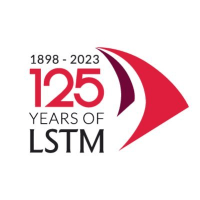About the Project
This project offers a career-enhancing opportunity for a PhD-student to join Venom-Research-Units focusing upon utilising modern technical platforms to devise new therapies to improve the efficacy, safety and affordability of snakebite treatment. The student will be trained in (i) constructing and bioinformatically analysing African snake venom gland transcriptomes, and (ii) using that data to accurately annotate venom proteomes at the Liverpool School of Tropical Medicine.
The student will next benefit from a 1 year visit to Professor Calvete’s lab (Valencia) applying our novel antivenomic strategy to identify the venom proteins required to generate a single antivenom with sub-Saharan African efficacy.
References
Harrison RA, Cook DA, Renjifo C, Casewell NR, Currier RB and Wagstaff SC. (2011) Research strategies to improve snakebite treatment: challenges and progress. Journal of Proteomics 74:1768-1780.
Calvete JJ, (2011) Proteomic tools against the neglected pathology of snake bite envenoming. Exp Rev Proteomics, 8(6):739-58.
Segura A, Villalta M, Herrera M, León G, Harrison RA, Durfa N, Nasidi A, Calvete JJ, Theakston RDGT, Warrell DA, and Gutiérrez J-M. (2010) Preclinical assessment of the efficacy of a new antivenom (EchiTAb-Plus-ICP®) for the treatment of viper envenoming in sub-Saharan Africa. Toxicon, 55:369-374.
Petras, D, Sanz, L, Segura, A, Herrera, M, Villalta, M, Solano, D, Vargas, M, Leon, G, Warrell, DA, Theakston, RDG, Harrison, RA, Durfa, N, Durfa, N, Nasidi A, Gutierrez J-M, Calvete, JJ (2011) Snake venomics of the African spitting cobras: Toxin composition and assessment of congeneric cross-reactivity of the Pan-African EchiTAb-Plus-ICP antivenom by antivenomics and neutralization approaches. J Prot Res 10:1266-1280.
Wagstaff, SC and Harrison RA (2006) New insights into the mechanisms of Echis ocellatus envenoming by EST sequencing: identification of conserved a9b1 integrin binding motifs in SVMPs and molecular characterisation of a new group of putative toxins, the renin-like aspartic proteases. Gene 377:21-32

 Continue with Facebook
Continue with Facebook

